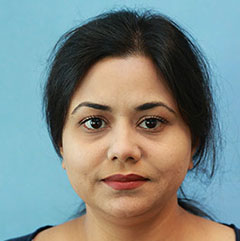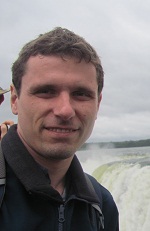Genetic Analysis of Mendelian and Complex Disorders (Virtual)
22–29 July 2022
Virtual Course
Learn state-of-the-art statistical analysis techniques for genetic data collected on related and unrelated individuals
Summary
In 2022 the course will be offered in a virtual format during a 6 day time period between 13:00 and 20:00 British Summer Time. Please note that the course dates do not include the weekend of July 23rd and 24th.
This intensive data-analytic course is aimed at scientists actively involved in genetic analysis of either rare (Mendelian) or complex human traits who anticipate using state-of-the-art statistical analysis techniques on genetic data collected on related and unrelated individuals. The programme provides a comprehensive overview of the statistical methods currently used to map disease susceptibility genes in humans and non-model organisms with an emphasis on data collected on families or populations (which should often be considered a collection of large families).
This is a small course, with a low student to instructor ratio, personalized attention, and the instructors actively involved throughout the week. Students briefly present their own research to the group and receive constructive criticism particularly pertaining to study design and analysis. This course is unique among statistical genetics courses in that it concentrates on approaches that capitalize on families or a combination of families and unrelated individuals in the post-GWAS era.
Why does this course emphasise family data?
In the GWAS and post-GWAS era, gene mapping has concentrated on analysis of unrelated individuals due to simplicity and convenience. However, these approaches tend to treat any relatedness among individuals as a nuisance to be adjusted away rather than a benefit to be exploited. Furthermore, researchers are increasingly aware that the use of unrelated individuals has limitations that family data can overcome. Family studies have many advantages in gene mapping:
- They are extremely powerful in situations where unrelated individuals lack power (e.g., when rare variants underlie the aetiology) since related affecteds are more likely to share the same disease predisposing gene than unrelated affecteds.
- They overcome confounding factors such as population stratification and allow better modelling of environmental factors.
- They allow the examination of a wealth of nuanced genetic models.
- They provide ways to rule out artefacts and false associations that can plague genetic analyses. This course will enable participants to make better use of their data that may include related individuals.
During this course, discussions of the latest statistical methodology are complemented by practical hands-on computer exercises using state-of-the-art software. The statistical principles behind each method will be carefully explained so that participants with a non-statistical background can understand and better interpret their results. Note, however, that the bioinformatics pipelines for calling variants from next generation sequencing data are not covered; the focus of this course is on the downstream analysis of the called variants.
Target audience
This course is aimed primarily at advanced Ph.D. students and post-docs who are early in their careers, whose projects involve data that could be analysed by the methods covered in this course. Since we emphasize methods for handling family data, there is a preference for candidates who have some family data or who are likely to have access to family data in the near future. Programming experience is not required, but candidates without prior experience with the Unix/Linux/Mac command line will be expected to read through a tutorial on this topic prior to the course.
The programme will discuss fundamental issues needed to increase success in gene mapping studies including:
- Why families?
- Contrasting family and population study designs
- Practical aspects of collecting family data
- Association analysis in samples of unrelated and related individuals
- Linear mixed models (LMM, aka variance components)
- Linkage analysis as an effective tool for gene mapping in the post-GWAS era
- Quality control strategies
- When only using unrelateds
- When families are included
- Using families in order to move beyond simple genetic models
6.Haplotyping using GWAS and sequencing data
7. Analysis of rare traits using sequencing data from families
8. Post-GWAS analyses using families
Teaching will take the form of lectures by invited expert speakers, informal tutorials, hands-on computer sessions, and analysis of example disease data sets. Our interactive and intensive educational programme will enable researchers to better carry out sophisticated statistical analyses of genetic data, and will also improve their interpretation and understanding of the results. All the software used is freely available, so that skills learned can be easily applied after the course. After the course, participants will be provided with a virtual machine copy of the computer used during the course, so that back at their home institutions they can easily explore the computer exercises and example data sets in greater detail.
To ensure that participants get constructive advice related to their own research, each participant will give a brief presentation about their planned or on-going research project
Learning outcomes
On completion of the course, participants can expect to:
- Understand the use of family and population data in genetic analyses and determine in what ways family data would be useful in their own research projects.
- Have a deeper understanding of optimal study design and power, and to be able to critically evaluate the design and power of their own research projects.
- Understand current best statistical approaches, and under which conditions their use is appropriate or inappropriate, and thus determine the most suitable statistical methods for their own research projects.
- Be able to use current software to analyse real family and population data and to interpret the results, including quality control, association and linkage testing, and fine mapping approaches.
Programme
For our virtual courses, we use video conferencing (Zoom) and instant messaging (Slack) applications along with other online and virtual machine (VM) teaching resources to deliver the different elements of the course as interactively as possible.
The 5-day programme will run approximately 13:00-20:00 (BST) daily. Some teaching materials may be pre-recorded but participants must be available to attend live, interactive sessions online between these times.
The virtual programme will discuss fundamental issues needed to increase success in gene mapping studies including:
1. Why families?
- Contrasting family and population study designs
- Practical aspects of collecting family data
2. Association analysis in samples of unrelated and related individuals
- Linear mixed models (LMM, aka variance components)
3. Linkage analysis as an effective tool for gene mapping in the post-GWAS era
4. Quality control strategies
- When only using unrelateds
- When families are included
5. Using families in order to move beyond simple genetic models
6. Haplotyping using GWAS and sequencing data
7. Analysis of rare traits using sequencing data from families
8. Post-GWAS analyses using families
Teaching will take the form of lectures by invited expert speakers, informal tutorials, hands-on computer sessions, and analysis of example disease data sets. Our interactive and intensive educational programme will enable researchers to better carry out sophisticated statistical analyses of genetic data, and will also improve their interpretation and understanding of the results. All the software used is freely available, so that skills learned can be easily applied after the course.
To ensure that participants get personalized constructive advice, particularly pertaining to the study design and analysis plan for their own research, each participant will give a short presentation about their planned or ongoing research projects.
Learning outcomes
On completion of the course, participants can expect to:
- Understand the use of family and population data in genetic analyses and determine in what ways family data would be useful in their own research projects.
- Have a deeper understanding of optimal study design and power, and to be able to critically evaluate the design and power of their own research projects.
- Understand current best statistical approaches, and under which conditions their use is appropriate or inappropriate, and thus determine the most suitable statistical methods for their own research projects.
- Be able to use current software to analyse real family and population data and to interpret the results, including quality control, association and linkage testing, and fine mapping approaches.
Instructors and speakers
Course instructors

Dan Weeks (Course Organiser)
University of Pittsburgh, USA

Heather Cordell
Institute of Genetic Medicine, Newcastle University, UK

Simon Heath
Centre Nacional d’Anàlisi Genòmica (CNAG), Spain

Janet Sinsheimer
University of California, Los Angeles, USA

Eric Sobel
University of California, Los Angeles, USA

Joe Terwilliger
Columbia University, New York, USA

Najaf Amin
University of Oxford, UK
Guest speakers

Bogdan Pasaniuc
Geffen School of Medicine at UCLA, USA

Jing Ma
Fred Hutchinson Cancer Research Center, Seattle, USA.
How to apply
Prerequisites
Applicants should be advanced Ph.D. students and post-docs who are early in their careers, whose projects involve data that could be analysed by the methods covered in this course. Since we emphasize methods for handling family data, there is a preference for candidates who have some family data or who are likely to have access to family data in the near future. Programming experience is not required, but candidates without prior experience with the Unix/Linux/Mac command line will be expected to read through a tutorial on this topic prior to the course.
Please note that due to the virtual format for this course, participants will require minimum computer specifications and internet access to fully benefit. A guide to these requirements can be found here (PDF).
How to Apply
Please click the Apply button above to begin the online application process. Places are limited and will be awarded on merit. If you have any problems with the online application process, please contact us.
Please note: Applications must be supported by a recommendation from a scientific or clinical sponsor (e.g. supervisor, line manager or head of department). A request for a supporting statement will be sent to your nominated sponsor automatically during the application process. Applicants must ensure that their sponsor provides this supporting statement by the application deadline. Applications without a supporting statement cannot be considered.
Cost
| Cost | ||
| *Course fee | £250 | This course will be delivered in a virtual format. |
*The course fee is subsidised by Wellcome Connecting Science Courses and Conferences and applies to non-commercial applicants. Please contact us for the commercial fee.
Bursaries
Limited bursaries are available (up to 50% reduction on the course fee) and are awarded on merit. If you would like to apply for a bursary, please complete the bursary section of the online application form.
Where there are many bursary applications, the selection committee may issue smaller amounts.
Bursaries can be applied for as part of the course application form. Applicants will be notified of a bursary award along with their place on the course, usually within one month of the application deadline. The decision of the selection committee is final.
Please note that both the applicant and sponsor are required to provide a justification for the bursary as part of the application.
Additional funding opportunities
Visit our support page for additional financial support currently available.
Accommodation services phishing scam – please be vigilant. More information.
Testimonials
Feedback from the 2019 course:
“This was the most intellectually engaging course and particularly relevant to my research work I ever attended.”
“This is an excellent course covering a wide range of topics and taught by inspirational instructors. I have learnt so much and am now buzzing with new ways I can possibly analyze my data.”
“Fantastic faculty, great staff:student ratio, great invited speakers programme.”
“I came away from this course feeling exhausted and elated at the same time! I have a much firmer grasp on all the topics covered than I had before, and a greater confidence in my own knowledge and ability. Really looking forward to sharing what I have learnt with my colleagues. Thank you for letting me be a part of this experience!”
“The course was excellent.”
“Thank you for all the time and hard work put in by the instructors and speakers – it was a fascinating and inspirational course.”
“Thank you for an excellent course!”

